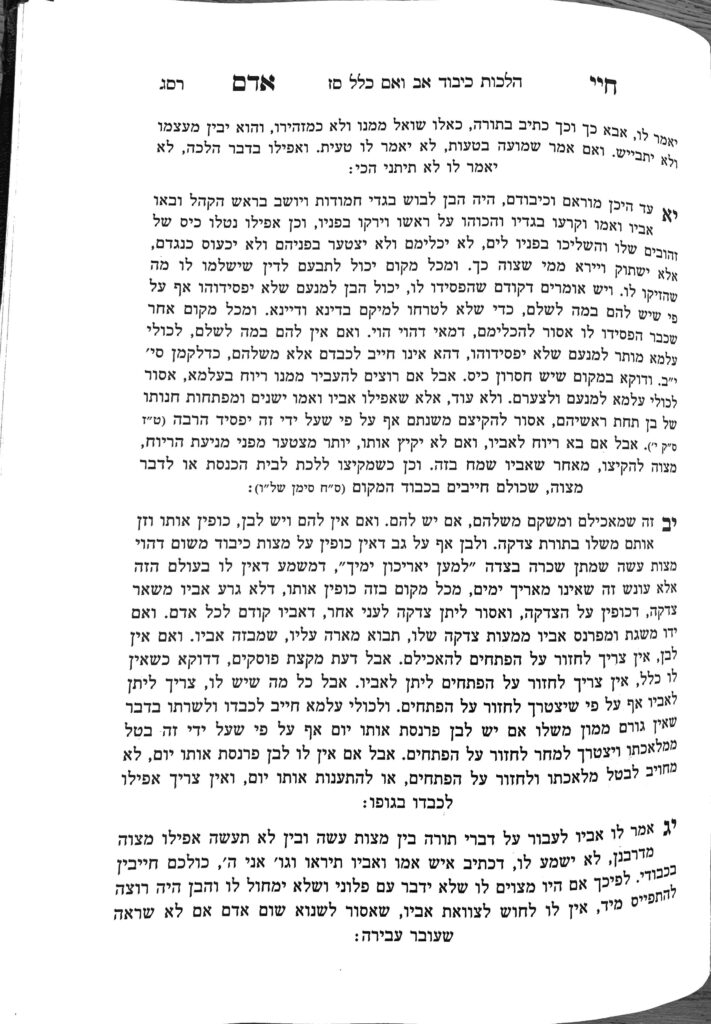We are beginning siman 13, where the Chayei Adam will discuss direct conflict between kibud av v’eim and a mitzvah.
If a parent tells a child to transgress a mitzvah asei or lo saasei of the Torah (i.e., even when the parent wishes the child to transgress a mitzvah passively, such as not to put on tefillin) the child should not listen to the parent. This is true even if the mitzvah is only a mitzvah derabanan, where one could have thought that the mitzvah deoraysa of kibud av v’eim would override a mitzvah derabanan. (We will discuss minhagim later.)
The Chayei Adam explains that the source of this halacha is the pasuk ish imo v’aviv tira’u, Ani Hashem. Listening to one’s parents falls under the mitzvah of morah, and Chazal explain that the reason the pasuk ends off with the command to fear Hashem is to teach us that the parent also has a chiyuv kavod to Hashem. This idea is akin to a minister commanding something of a peasant, where it would be considered an insult to the king for the peasant not to listen to the minister. The respect due to the king requires respecting his ministers as well. On the other hand, if the king commands something, the minister must follow the king’s command in the same way the peasant must, and if the minister were to contradict the command of the king, his words would be completely disregarded. The sole source of the responsibility to listen to the minister is rooted in the responsibility to respect the king. When the minister asks the peasant to disrespect the king’s command, the minister totally undermines the source of his own respect, and invalidates any respect due to him in that regard. So too with a parent in regards to Hashem’s mitzvos.
The Gemara discusses this concept regarding asei doche lo saasei. We have a general concept that a positive mitzvah overrides a negative mitzvah, so one could have thought that the positive mitzvah to perform kibud av v’eim would override whichever mitzvah the parent wishes the child to transgress. The Gemara explains that the continuation of the pasuk of Ani Hashem teaches us that any time Hashem’s command is being transgressed, there is no chiyuv kibud av v’eim, in the same way there is no obligation to listen to a minister who contradicts the king.
Summary
If a parent directly asks a child to transgress any mitzvah, even a mitzvah derabanan, the child should not listen.



